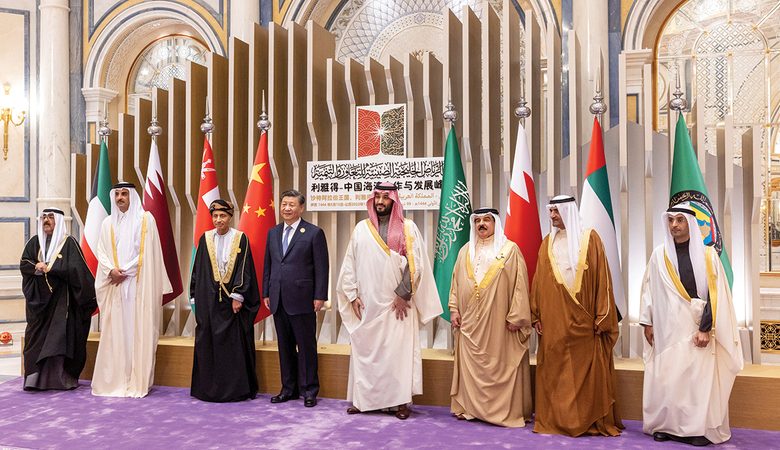How is the Gulf Seeking to Showcase the Arab Weight and Influence in the Global System?

Starting from 2024. three Arab countries are set to join the BRICS economic group. which includes 11 nations including Egypt. the UAE. and Saudi Arabia. These countries will become allies of new global powers. namely China.Russia, South Africa, India, Brazil. and others.
Gargash on the Bahrain-Qatar meeting: Gulf and Arab solidarity rings a guarantee for the region
The BRICS nations collectively represent about a quarter of the world’s wealth. During the previous conference in Johannesburg. they aimed to expand the influence of the alliance and drive a shift in global politics. The President of South Africa. Cyril Ramaphosa. announced during the annual summit of the alliance the invitation for Egypt, the UAE. and Saudi Arabia to join the group.
The BRICS group accounts for around 26% of the global GDP, 42% of the world’s population, and 16% of global trade. Saudi Arabia, as the largest trade and strategic partner in the Middle East, is well positioned to join the organization, given its economic progress and stability that supports development pathways, as well as its strategic location.
Data revealed that for the first time, the BRICS group has surpassed the Group of Seven (G7) advanced nations in the world. BRICS contributed 31.5% of the global GDP, compared to G7’s 30.7%.
Away from the camera.. The father of the Emir of Qatar hosts luncheon banquet for President of Turkey
Experts point out that the BRICS organization is not merely an economic one; it’s a political organization that brings together states dissatisfied with the unipolar world order, aiming to replace it with a new global system in which the group has a larger role.
The inclusion of Middle Eastern countries in BRICS aims to bring new growth into the system. Saudi Arabia and the UAE possess the necessary economic and political capabilities for this future endeavor, especially considering that joining BRICS opens up more markets.
Cyril Ramaphosa, President of South Africa, stated during a recent meeting of the group, “BRICS must become a leader in the global economy,” highlighting the group’s economic strength, political influence, and developmental cooperation.
Human rights activist Salah Al Fahd emphasized that the invitation for Saudi Arabia and the UAE to join the BRICS group signifies that Arabs and the Gulf, in particular, will carry weight and influence in the new global system forming today, moving away from Western dominance. The era of Arab influence is coming.
Dr. Zaid Al Khudaydi, a member of the American Policy Organization and a business development advisor, noted that the inclusion of Saudi Arabia, Egypt, and the UAE in BRICS is an important step for these countries. Contrary to misconceptions, BRICS is not merely an economic organization; it is also a political one, uniting states dissatisfied with the unipolar world order.
He further affirmed the benefits of utilizing the markets, capabilities, and resources of the member countries to support development plans and expand development opportunities. With 41% of the world’s population and being a home to key emerging economies, this alliance presents a huge economic market capable of accommodating exports from any economy, not to mention the substantial investment opportunities it offers.












